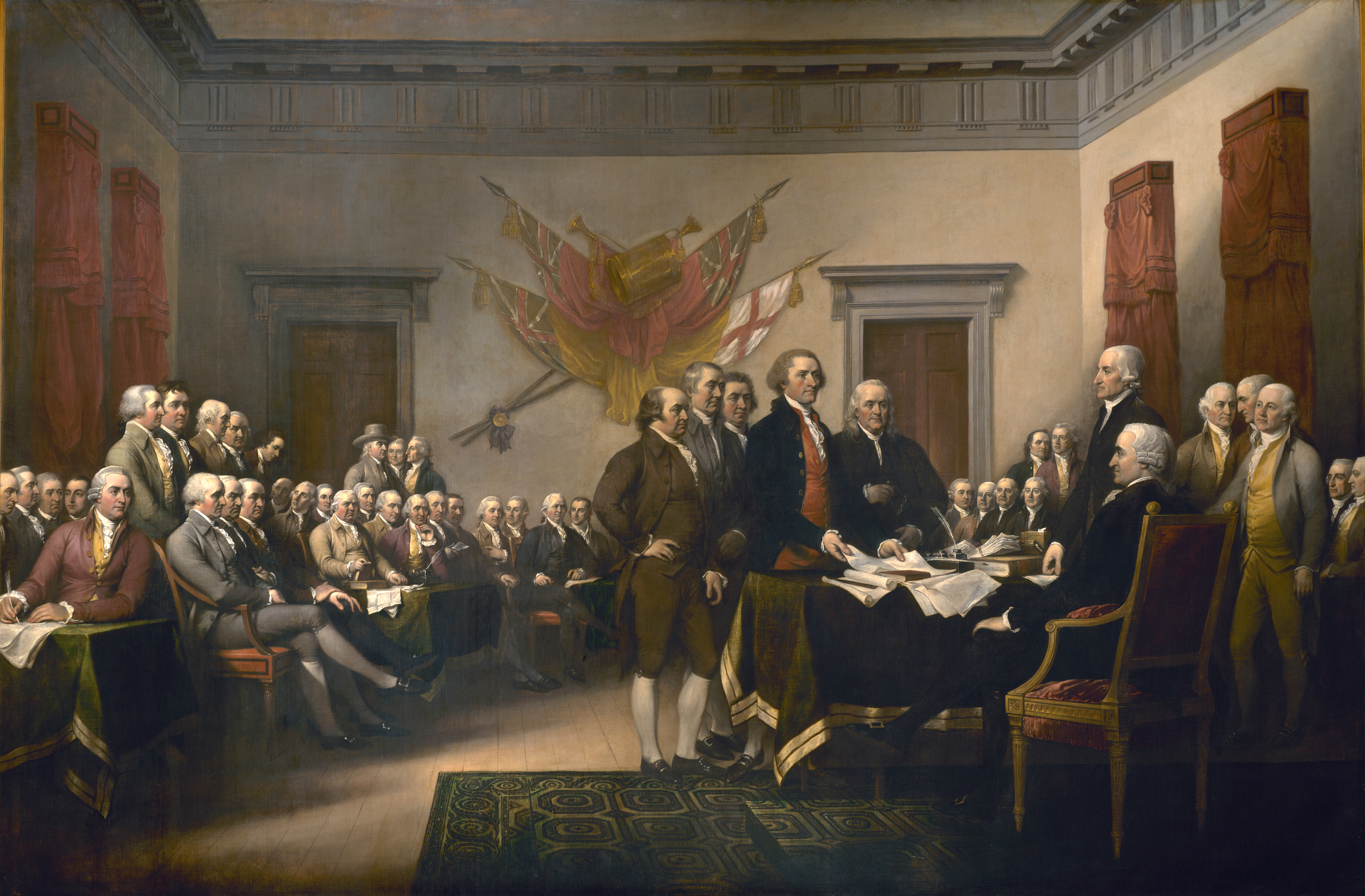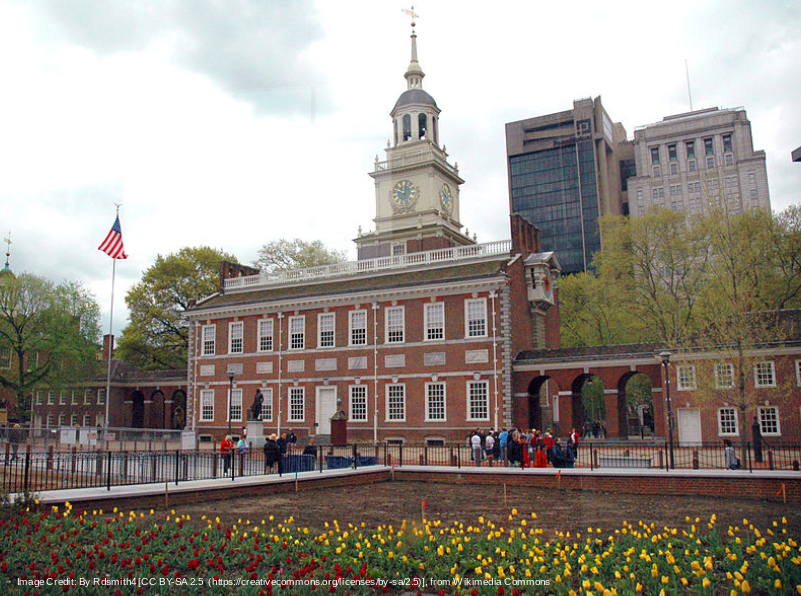Mark Cole
What follows are my personal reflections on the lives of a handful of great and impressive men who have come to mean a great deal to me. I do not purport to write definitive biographies on any of these men. Even for a professional historian, the goal of saying something new and interesting about, for example, Jefferson or Adams, would be very daunting. All I have done is read and research what I could about each of the signers of the Declaration of Independence, and then record what impressed me. Other people doing the same exercise would likely have different priorities and would be impressed with different aspects of these men’s lives. If nothing else, perhaps my efforts here will inspire a reader to go to original biographical resources and read in depth for himself or herself on the life of one of the men briefly profiled here.
It has often rightly been noted that as a group, the signers of the Declaration of Independence (like the delegates to the Constitutional Convention) were some of the ablest men of the founding era. That is absolutely true. I have come to understand that much better through the process of researching and writing this short book. In addition, many writers and speakers have eloquently spoken of the sacrifices of the signers who risked their lives, fortunes and sacred honor. That is also true and that is necessarily one of the themes found here. While it is theoretically possible that we could make too much of their sacrifice, I think the greater danger in our day of cynicism and historical revisionism is that we probably make too little of the sacrifices they made and the risks they took.
Each of the signers risked greatly and many of them sacrificed greatly. We should never forget that and every generation of liberty lovers (especially Americans) needs to remember for itself the importance of the sacrifices made during previous eras.
I am reminded that in book seven of Herodotus’ The History (a work which, incidentally, the founders knew intimately), when Xerxes invaded Greece with his massive army (numbered by Herodotus at more than 2,000,000), he is told by a mounted spy that a small band of three hundred Spartans, led by King Leonidas, was standing in the mountain pass at Thermopylae and were preparing to fight to the death. Xerxes simply could not comprehend this. He thought what was described to him was literally absurd. So he waited for four days, expecting that the Spartans would quietly step aside and let him pass.
But those three hundred Spartans (as well as seven hundred Thespians) did not move. They stood their ground because they valued Greek independence more than life itself. Finally, Xerxes’ mighty army was forced to attack. They met ferocious resistance. The Spartans fought to the death and Xerxes advanced. But in their heroic stand, the Spartans inflicted massive losses on Xerxes and demonstrated to both Greeks and Persians that Greece would never be conquered by Xerxes.
The men who signed the Declaration of Independence were men like that. They knew full well that what they were doing would subject them to possibly being hunted down and hanged. There was certainly no guarantee that the ill-equipped Continental Army could withstand the assault of King George III’s professional standing army. And they would have been right to have real worries. The first six or eight months of the war did not go especially well. But they signed the Declaration anyway. They were prepared to die. Fortunately – or better, and as they might say, because of the reliable protection of divine Providence – most of the signers were not killed during the Revolution, though many lost their fortunes, their health, and their loved ones.
My hope is that we are not like Xerxes when we look at the lives of the signers. If we are simply bewildered by their sacrifice or uncomprehending of their motivations, then we have lost the capacity to even understand freedom, let alone to fight for it if necessary.
I do not believe that is the case, however. I believe that most Americans are not confused by the sacrifice the signers made and the courage they showed, but are, rather, inspired.
Every few generations, Americans are called upon to sacrifice heroically for the cause of freedom. If history is a guide, that time will come again at some point in the future. The affected generation will then need to respond. One of the ways to do that is to recall what flesh and blood men in previous eras have done. Perhaps this short volume can help my generation, or perhaps the next generation, to do just that.
For more awesome stories about the Signers –
Check out Mark’s book:
Lives, Fortunes, Sacred Honor: The Men Who Signed the Declaration of Independence















